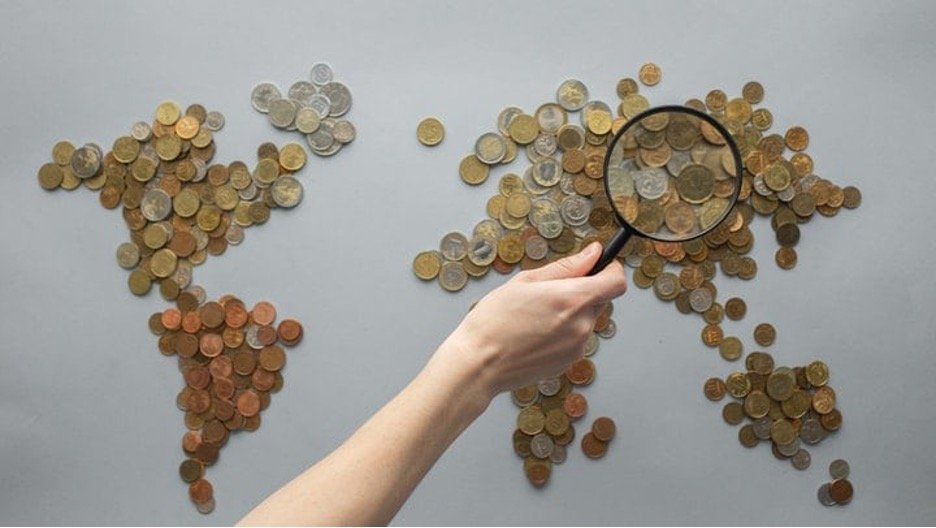Tips for international travel spending

Embarking on a journey across international borders not only broadens your horizons but also poses a significant question - how to manage your funds effectively? In this insightful blog, we delve into strategies for optimal international spending, ensuring you make the most out of every transaction abroad.
From currency exchange tips to leveraging the right financial tools, this guide is tailor-made for travelers seeking to maximize their spending power internationally. So, whether you're a seasoned globetrotter or planning your first overseas adventure, these tips will pave the way for a financially savvy journey.
Read on to discover how you can navigate the waters of foreign transactions with ease, making every penny count on your international escapades.
Understanding Currency Exchange
One of the key aspects of international spending is managing currency exchange. Being mindful of exchange rates and fees is crucial for saving money. Use reliable currency conversion apps to get real-time rates and plan your exchanges wisely.
Avoid exchanging money at airports where rates are less favorable. Instead, opt for local banks or authorized currency exchange offices. Some travelers also prefer withdrawing local currency from ATMs for better rates and convenience.
Credit Cards and International Fees
Not all credit cards are created equal, especially when it comes to foreign transactions. Look for cards that offer no foreign transaction fees to avoid extra charges on your purchases abroad.
Additionally, informing your credit card company about your travel plans can prevent potential blocks on your card, ensuring a smoother spending experience overseas.
Local Payment Methods and Negotiations
Embracing local payment practices can also lead to savings. In some destinations, cash transactions may afford you better prices, particularly in markets or with street vendors. Always carry a certain amount of local currency to capitalize on these opportunities.
Negotiating prices is common in many cultures. A polite request for a discount or bargaining can lead to unexpected savings, enhancing your international spending efficiency.
Tracking Your Spending
Keeping an eye on your expenditures is pivotal. Utilize budgeting apps to monitor your spending patterns and adjust your budget accordingly. This not only helps in managing your finances but also in avoiding overspending.
Mobile Payments and Digital Wallets
The rise of mobile payments has revolutionized the way we spend abroad. Services like Apple Pay, Google Wallet, and PayPal offer convenient and often secure ways to make transactions without the hassle of carrying cash or cards.
Understanding VAT Refunds
In many countries, tourists are eligible for a refund of the Value Added Tax (VAT) on their purchases. Familiarizing yourself with the process can result in significant savings, especially on big-ticket items. Keep all receipts and follow the country-specific procedures to claim your refund.
Investing in Travel Insurance
Lastly, while not directly related to day-to-day spending, investing in travel insurance can save you a substantial amount in unforeseen circumstances. Healthcare abroad, trip cancellations, or lost belongings can incur huge costs, and having insurance is a prudent financial safeguard.
{FAQ}
{FAQ_ITEM}
{FAQ_TITULO}What are the best ways to exchange currency for international travel?{/FAQ_TITULO}
{FAQ_CONTEUDO}Opt for local banks or currency exchange offices with favorable rates, and consider using ATMs for withdrawals in the local currency. Avoid airport exchange counters due to their higher rates.{/FAQ_CONTEUDO}
{/FAQ_ITEM}
{FAQ_ITEM}
{FAQ_TITULO}How can I avoid foreign transaction fees on my credit card?{/FAQ_TITULO}
{FAQ_CONTEUDO}Look for credit cards that specifically offer no foreign transaction fees. Many travel-oriented credit cards provide this feature along with additional travel benefits.{/FAQ_CONTEUDO}
{/FAQ_ITEM}
{FAQ_ITEM}
{FAQ_TITULO}Is negotiating prices common in all countries?{/FAQ_TITULO}
{FAQ_CONTEUDO}Not in all countries, but in many parts of the world, especially in markets and street vendor settings, negotiating prices is part of the buying culture. Always approach it politely.{/FAQ_CONTEUDO}
{/FAQ_ITEM}
{/FAQ}
Wrapping Up Your International Spending Strategy
With these insights, maneuvering through the intricacies of international spending doesn’t have to be daunting. From smart currency exchanges to choosing the right payment methods, a little preparation goes a long way.
Embrace these practices to enhance your travel experience, ensuring that your focus remains on the adventures and memories you’re creating, rather than the costs associated with them.
Safe travels and smart spending!

Related